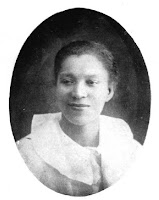"A lack of 'literary value' has apparently left Ralph Ellison's landmark 1952 novel,
Invisible Man banned from school libraries in Randolph County, N.C., the Asheboro Courier-Tribune reports. […]
As the school district's policy requires, the complaints [of a Randolph County, N.C. parent of an eleventh grader] lead to votes on the school and district levels. Both held that the book should remain available to students in the library. However, in a 5-2 vote, the school board voted to ban the book, with one board member, Gary Mason, stating, 'I didn’t find any literary value.'
Mason's blunt assessment however, runs counter to decades of intellectual criticism of the novel, which won the 1953 National Book Award for fiction, beating out Ernest Hemingway's
The Old Man and the Sea and John Steinbeck's
East of Eden.
In 1995, writing for the New York Times, Roger Rosenblatt praised the novel as a masterpiece.
'Ralph Ellison's
Invisible Man, which won the National Book Award in 1953, was instantly recognized as a masterpiece, a novel that captured the grim realities of racial discrimination as no book had,' Rosenblatt wrote. 'Its reputation grew as Ellison retreated into a mythic literary silence that made his one achievement definitive.'"
—
Huffington Post
Read more…
"[…] All [Randolph County Board of Education] members were given copies to read before the vote. Board Chair McDonald said 'it was a hard read.'
Mason said, 'I didn’t find any literary value' and objected to the book’s language. 'I’m for not allowing it to be available,' he added.
A school district official said ahead of the vote that
Invisible Man was just one of many options in school libraries, and that no student was forced to read it. She also stressed that the state Department of Public Instruction approved the book for student consumption.
Invisible Man was one of three books that Randleman High School juniors-to-be in the 2013-14 school year could choose to read for the summer.
Black Like Me by John Howard Griffin and
Passing by Nella Larsen were the students’ other choices. Honors students had to choose two of the three books."
—
rt.com
Read more…
Here's another post about
censorship...
For a list of books banned in the U.S. go
here...
Here's a link to what's happening in your area of the U.S.A. during
Banned Books Week — September 22 - 28, 2013.
Buy Ralph Ellison's
Invisible Man and the other books mentioned in these posts
here...


































